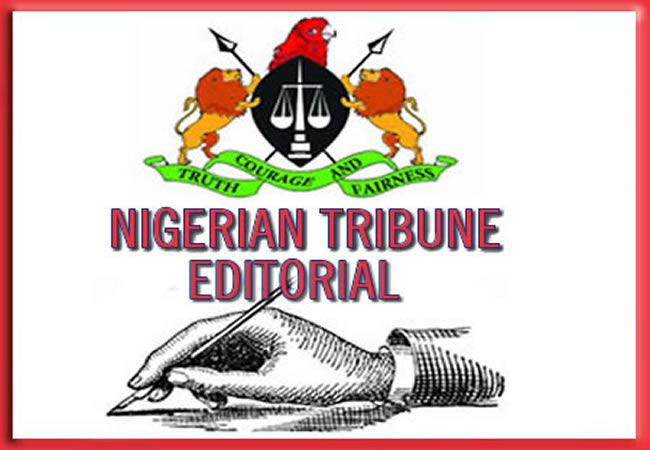
RECENTLY, in yet another publicised palliative move following the removal of subsidy on petrol, the Federal Government announced its approval of a zero percent Value Added Tax (VAT) waiver on feed gas, Compressed Natural Gas (CNG) and imported liquefied petroleum gas, with immediate effect. In addition, the waiver was extended to CNG equipment components, conversion and installation services, Liquefied Petroleum Gas (LPG) equipment components, conversion and installation services, and all equipment and infrastructure related to the expansion of CNG, LPG and the Presidential CNG Initiative, including conversion kits. The government’s position was conveyed through the Minister of Finance and Coordinating Minister of the Economy, Mr. Wale Edun. A statement issued on the minister’s behalf by his Director of Information and Public Relations, Mohammed Manga, said the initiative would position Nigeria’s deep offshore basin as a premier destination for global oil and gas investments, bolster energy security, and accelerate Nigeria’s transition to cleaner energy sources.
The statement read: “In its avowed determination towards ensuring a boost in the nation’s upstream and downstream sector, the Federal Government has introduced groundbreaking concessions aimed at revitalizing the industry. This is just as the Minister of Finance and Coordinating Minister of the Economy, Mr Wale Edun, today unveiled two major fiscal incentives aimed at revitalising Nigeria’s oil and gas sector: Value Added Tax Modification Order 2024 and Notice of Tax Incentives for Deep Offshore Oil & Gas Production, in accordance with the Oil & Gas Companies (Tax Incentives, Exemption, Remission, etc.) Order 2024. The VAT Modification Order 2024 introduces exemptions on a range of key energy products and infrastructure, including diesel, feed gas, Liquefied Petroleum Gas, Compressed Natural Gas, electric vehicles, Liquefied Natural Gas infrastructure, and clean cooking equipment. These measures are designed to lower the cost of living, bolster energy security, and accelerate Nigeria’s transition to cleaner energy sources.”
Also, a circular titled ‘Fiscal Incentives for the Presidential Gas for Growth Initiative’ and issued by the Finance Minister directed the Nigeria Customs Service (NCS) and the Federal Inland Revenue Service (FIRS) to immediately apply a zero percent VAT rate on the items. The circular read: “In line with His Excellency, Mr President’s commitment to improve the investment climate in Nigeria and to increase (sic) the utilisation and supply of gas in the domestic market pursuant to Part 1, Section 5 of the Customs and Excise Tariff Act, which grants an import duty waiver on machinery, equipment and spare parts imported into Nigeria for the utilization of Nigerian gas (‘Gas Utilization Waiver’), the importation of all equipment related to Compressed Natural Gas and Liquefied Petroleum Gas into the Nigerian market shall attract zero percent (0%) import duty rate. The eligible Compressed Natural Gas and Liquefied Petroleum Gas equipment covered by the existing gas utilization waiver is outlined in the attached appendix.”
Meanwhile, the price of cooking gas, a commodity relied upon by millions of Nigerian households for their daily cooking needs, has continued to spike. Only this week, the cost of cooking gas per kilogram shot up to N1,500. It previously sold for 1,200 per kg. Worried by the situation, the House of Representatives, on Wednesday, called for the immediate reversal of the price increases in petrol and cooking gas through targeted subsidies. The Green Chamber was concerned that the hike was causing hardship for Nigerians and threatening job security. Moving the motion on behalf of the sponsors, the Deputy Minority Leader, Aliyu Madaki (NNPP, Kano), stated that “the rising cost of petrol and cooking gas poses a significant threat to the livelihood of millions of Nigerians. The unchecked inflationary pressure caused by the increased prices could lead to social unrest, increased poverty, and other negative long-term effects. Unless urgent and pragmatic steps are taken to control the rising cost of petrol and cooking gas, the nation will face an economic crisis, resulting in increased crime rates and mortality.”
In August this year, the Minister of State for Petroleum Resources (Gas), Ekperikpe Ekpo, had promised to ensure a reduction in the rising cost of cooking gas. But that has not happened. It is disturbing that the duty waivers announced by the government are not being implemented. Recently, we had occasion to lament the unimplemented tax waivers on the importation of food items announced by the government. Till today, the 150-day duty-free import window for food commodities approved by President Bola Tinubu on July 8 to alleviate food inflation in the country has not been implemented. It is thus fair to ask whether the promised waiver of duty on cooking gas, diesel and other products is just another hollow promise like the duty waivers on food items such as rice that are being delayed by administrative bottlenecks. This question becomes necessary because this is not the first time the government has promised to waiver tax on CNG products. And what about the promised waivers on pharmaceuticals? The prices of medicine are soaring. The government has to follow up on its promises and ensure that Nigerians have the badly needed relief. The practice of announcing palliative measures and literally going to sleep thereafter has to stop. For instance, as the government delays the implementation of its tax waivers taxes on drugs, Nigerians suffering from different grave health conditions are suffering untold pain. As a matter of fact, many have died.
Regarding cooking gas and diesel, the government knows that they affect the everyday lives of Nigerians. It should therefore not be delaying the implementation of its promised waivers on them. In any case, the fact that over 60 percent of the cooking gas being consumed in Nigeria is imported is a testament to the government’s failure to stop gas flaring over the years.










